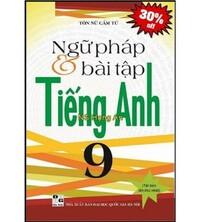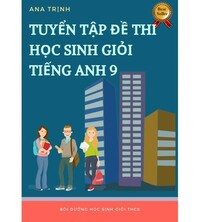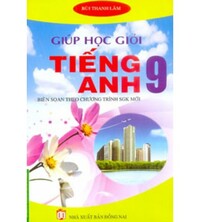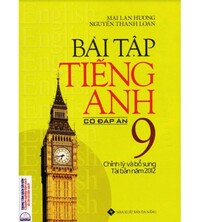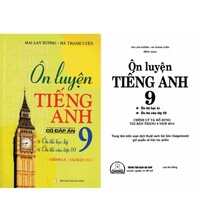Lesson 1 - Unit 2. Life in the Past - SBT Tiếng Anh 9 iLearn Smart World
a. Unscramble the words. b. Fill in the blanks using the words from Task a. Reading a. Read the article about families in the past and now. Choose the correct sentence.b. Now, read and circle True, False, or Doesn't say.
a
a. Unscramble the words.
(Xắp xếp lại từ.)
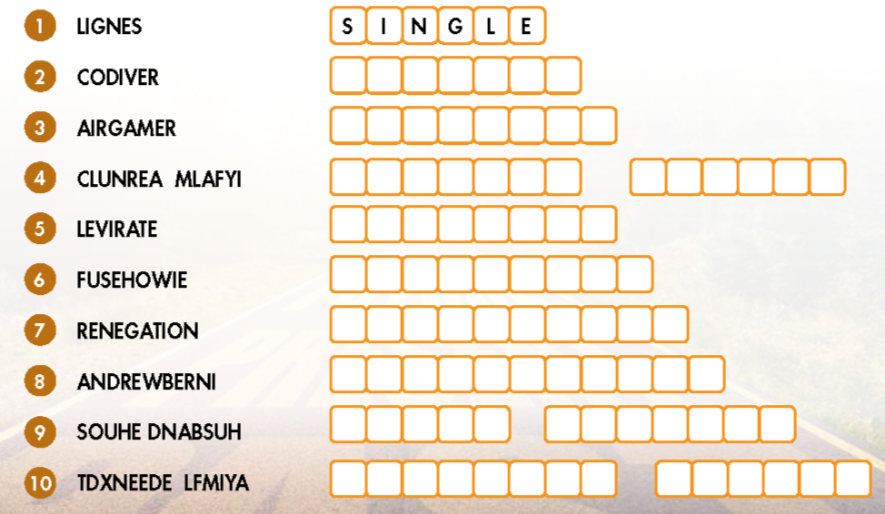
1. LIGNES
=> SINGLE
(độc thân)
Lời giải chi tiết:
2. CODIVER
=> DIVORCE
(ly hôn)
3. AIRGAMER
=> MARRIAGE
(kết hôn)
4. CLUNREA MLAFYI
=> NUCLEAR FAMILY
(gia đình hạt nhân)
5. LEVIRATE
=> RELATIVE
(họ hàng)
6. FUSEHOWIE
=> HOUSEWIFE
(bà nội trợ)
7. RENEGATION
=> GENERATION
(thế hệ)
8. ANDREWBERNI
=> BREADWINNER
(trụ cột gia đình)
9. SOUHE DNABSUH
=> HOUSE HUSBAND
(ông chồng nội trợ)
10. TDXNEEDE LFMIYA
=> EXTENDED FAMILY
(gia đình nhiều thế hệ)
b
b. Fill in the blanks using the words from Task a.
(Điền vào chỗ trống bằng cách sử dụng các từ trong Bài tập a.)
1. She's the breadwinner and works hard to earn money for the family.
(Cô ấy là trụ cột gia đình và làm việc chăm chỉ để kiếm tiền cho gia đình.)
2. After getting married, my mom stopped working and became a .
3. Some husbands and wives have happy. s, and some don't.
4. Some men choose to be s because they want to stay at home and look after their kids.
5. There are three s living in my house: my sister and me, my parents, and my grandma.
6. I have a big my parents, and my sister. There are my four grandparents, six aunts and uncles, ten cousins.
7. These days, many people choose to stay and not get married.
8. My has only me, my mom, and my dad.
9. If a husband and wife are unhappy together, sometimes the best solution is for them to get .
10. My sister got married, and all our s came to the wedding to celebrate.
Lời giải chi tiết:
2. After getting married, my mom stopped working and became a housewife.
(Sau khi lấy chồng, mẹ tôi nghỉ làm và ở nhà nội trợ.)
3. Some husbands and wives have happy marriages, and some don't.
(Một số người chồng và người vợ có cuộc hôn nhân hạnh phúc, còn một số thì không.)
4. Some men choose to be house husbands because they want to stay at home and look after their kids.
(Một số đàn ông chọn làm chồng nội trợ vì họ muốn ở nhà chăm sóc con cái.)
5. There are three generations living in my house: my sister and me, my parents, and my grandma.
(Có ba thế hệ sống trong nhà tôi: chị gái tôi và tôi, bố mẹ tôi và bà tôi.)
6. I have a big extended family. There are my four grandparents, six aunts and uncles, ten cousins, my parents, and my sister.
(Tôi có một đại gia đình lớn. Có bốn ông bà tôi, sáu cô dì chú bác, mười anh chị em họ, bố mẹ tôi và chị gái tôi.)
7. These days, many people choose to stay single and not get married.
(Ngày nay, nhiều người chọn cách sống độc thân và không kết hôn.)
8. My nuclear family has only me, my mom, and my dad.
(Gia đình hạt nhân của tôi chỉ có tôi, mẹ tôi và bố tôi.)
9. If a husband and wife are unhappy together, sometimes the best solution is for them to get divorce.
(Nếu vợ chồng không hài lòng với nhau, đôi khi giải pháp tốt nhất là ly hôn.)
10. My sister got married, and all our relatives came to the wedding to celebrate.
(Chị tôi lấy chồng, họ hàng chúng tôi đều đến dự đám cưới.)
a
a. Read the article about families in the past and now. Choose the correct sentence.
(Đọc bài viết về gia đình xưa và nay. Chọn câu đúng.)
1. Families are worse now.
(Gia đình bây giờ còn tệ hơn.)
2. Families aren't the same now.
(Gia đình bây giờ không giống nhau.)
Families in the past looked very different from today. In this article, we'll take a look at some of the differences between now and then.
In the past, three or four generations would live together in one big family. Lots of relatives lived together in one house. Now, most people live in nuclear families with only parents and children. Back then, people would usually get married and stay together for life. It was the normal thing to do. Now, many people stay single, or become single parents. Marriage is just as important as it was in the past, but some people aren't afraid of getting divorced now.
In the past, the husband was usually the breadwinner, and the wife stayed at home and did the housework. Now, many families have both parents working and doing housework. And more men are house husbands today because they enjoy taking care of their children. Families will continue to change in the future.
Remember that it's normal for things to change like this, but not everyone likes it.
Phương pháp giải:
Tạm dịch:
Gia đình ngày xưa khác xa gia đình ngày nay. Trong bài viết này, chúng ta sẽ xem xét một số khác biệt giữa hiện tại và thời đó.
Ngày xưa ba, bốn thế hệ cùng chung sống trong một đại gia đình. Rất nhiều người thân sống cùng nhau trong một ngôi nhà. Hiện nay, hầu hết mọi người đều sống trong những gia đình hạt nhân chỉ có cha mẹ và con cái. Hồi đó, mọi người thường kết hôn và ở bên nhau suốt đời. Đó là việc bình thường phải làm. Hiện nay, nhiều người vẫn độc thân hoặc trở thành cha mẹ đơn thân. Hôn nhân vẫn quan trọng như xưa nhưng bây giờ một số người không sợ ly hôn.
Trước đây, người chồng thường là trụ cột gia đình, còn người vợ ở nhà làm việc nhà. Hiện nay, nhiều gia đình có cả bố lẫn mẹ đều đi làm và nội trợ. Và ngày nay ngày càng có nhiều đàn ông làm chồng nội trợ vì họ thích chăm sóc con cái. Gia đình sẽ tiếp tục thay đổi trong tương lai. Hãy nhớ rằng mọi thứ thay đổi như thế này là điều bình thường nhưng không phải ai cũng thích điều đó.
Lời giải chi tiết:
Đáp án: 2. Families aren't the same now.
(Gia đình bây giờ không giống nhau.)
b
b. Now, read and circle True, False, or Doesn't say.
(Bây giờ, hãy đọc và khoanh tròn True, False hoặc Doesn’t say.)
1. In the past, people lived in nuclear families.
2. Now, parents usually have more children than before.
3. Back then, the husband usually had a job.
4. Now, many women are housewives.
5. These days, lots of men don't want to be house husbands.
Lời giải chi tiết:
1. False
In the past, people lived in nuclear families.
(Ngày xưa con người sống trong gia đình hạt nhân.)
Thông tin: In the past, three or four generations would live together in one big family.
(Trước đây, ba hoặc bốn thế hệ cùng sống trong một gia đình lớn.)
2. Doesn't say
Now, parents usually have more children than before.
(Bây giờ, cha mẹ thường có nhiều con hơn trước.)
=> Không được đề cập đến
3. True
Back then, the husband usually had a job.
(Hồi đó, người chồng thường đi làm.)
Thông tin: In the past, the husband was usually the breadwinner, and the wife stayed at home and did the housework.
(Trước đây, người chồng thường là trụ cột gia đình, còn người vợ ở nhà làm việc nhà.)
4. False
Now, many women are housewives.
(Hiện nay có nhiều phụ nữ làm nội trợ.)
Thông tin: Now, many families have both parents working and doing housework. And more men are house husbands today because they enjoy taking care of their children.
(Hiện nay, nhiều gia đình có cả bố lẫn mẹ đều đi làm và nội trợ. Và ngày nay ngày càng có nhiều đàn ông làm chồng nội trợ vì họ thích chăm sóc con cái.)
5. Doesn't say
These days, lots of men don't want to be house husbands.
(Ngày nay, rất nhiều đàn ông không muốn làm chồng nội trợ.)
=> Không được đề cập đến
Grammar
Unscramble the sentences.
(Sắp xếp lại câu.)
1. people/extended families./In the past,/lived in
In the past, people lived in extended families.
(Trong quá khứ, con người sống trong những gia đình nhiều thế hệ.)
2. the breadwinner./the husband/Back then,/would usually be
.
3. Many years ago,/so easily./people didn't/get divorced
.
4. housewives and/the children./look after/often be/In the past,/women would
.
5. same house./live together/Back then,/generations would often/many different/in the
.
Lời giải chi tiết:
2. Back then, the husband would usually be the breadwinner.
(Hồi đó, người chồng thường là trụ cột gia đình.)
3. Many years ago, people didn't get divorced so easily.
(Nhiều năm trước, người ta không dễ dàng ly hôn như vậy.)
4. In the past, women would often be housewives and look after the children.
(Trước đây, phụ nữ thường làm nội trợ và chăm sóc con cái.)
5. Back then, many different generations would often live together in the same house.
(Hồi đó, nhiều thế hệ khác nhau thường sống chung trong một ngôi nhà.)
Writing
Write a short article about what family traditions and customs were like in the past and what they're like now. Write 100 to 120 words.
(Viết một bài văn ngắn về truyền thống và phong tục gia đình ngày xưa và bây giờ như thế nào. Viết 100 đến 120 từ.)
Lời giải chi tiết:
In the past, family traditions and customs were deeply rooted in cultural and religious practices. Generations would gather regularly for meals, celebrations, and religious observances, fostering strong bonds and passing down values and rituals. Marriage was often arranged, and extended families lived together, providing support and guidance. However, in modern times, family dynamics have evolved. With greater individual autonomy and changing societal norms, families now embrace diversity in traditions. Nuclear families are more common, and traditions may vary greatly between households. Technology has also reshaped how families interact, with virtual gatherings supplementing or replacing traditional gatherings. Despite these changes, the importance of family remains, albeit expressed in new and diverse ways.
Tạm dịch:
Trong quá khứ, truyền thống và phong tục gia đình đã ăn sâu vào thực hành văn hóa và tôn giáo. Các thế hệ sẽ tụ tập thường xuyên trong các bữa ăn, lễ kỷ niệm và các nghi lễ tôn giáo, thúc đẩy mối liên kết bền chặt và truyền lại các giá trị và nghi lễ. Hôn nhân thường được sắp đặt và các đại gia đình sống cùng nhau, hỗ trợ và hướng dẫn. Tuy nhiên, trong thời hiện đại, động lực gia đình đã phát triển. Với quyền tự chủ cá nhân lớn hơn và các chuẩn mực xã hội đang thay đổi, các gia đình giờ đây đón nhận sự đa dạng trong truyền thống. Gia đình hạt nhân phổ biến hơn và truyền thống có thể khác nhau rất nhiều giữa các hộ gia đình. Công nghệ cũng đã định hình lại cách các gia đình tương tác, với các cuộc tụ họp ảo bổ sung hoặc thay thế các cuộc tụ họp truyền thống. Bất chấp những thay đổi này, tầm quan trọng của gia đình vẫn còn, mặc dù được thể hiện theo những cách mới và đa dạng.
Search google: "từ khóa + timdapan.com" Ví dụ: "Lesson 1 - Unit 2. Life in the Past - SBT Tiếng Anh 9 iLearn Smart World timdapan.com"
